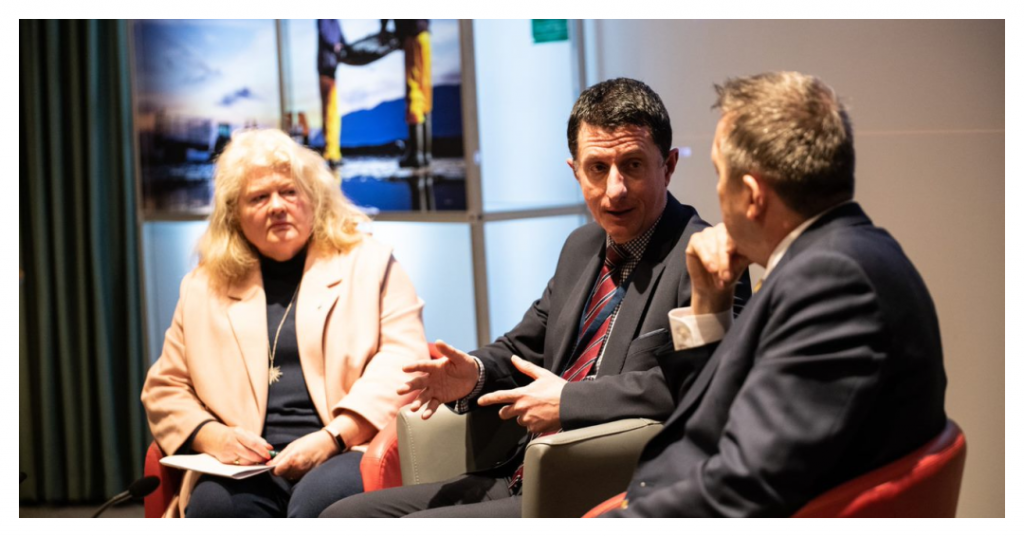Gastronomy Summit 2022 – Keynote speakers: promoting a more progressive agenda in food, drink and hospitality
The Oxford Cultural Collective has been working over the last three years with Ulster University to conceptualise and launch a new educational hub – Academy: the Centre for Food, Drink and Culture, located on the university’s new Belfast city campus. Gastronomy Summit 2022, an international conference co-hosted by Ulster University, the Oxford Cultural Collective, Food NI and Tourism NI, marked the opening of the Academy.
Gastronomy Summit 2022 held at Ulster University in Belfast from 11th to 13th April 2022, explored how food, drink and hospitality can help communities flourish. It reflected the ongoing process of societal transformation that is taking place in Northern Ireland, as well as in the numerous cultures and locations represented by the Summit’s speakers and delegates.
The quality of keynote contributions and the richness of discussions they inspired, built a collective sense that the Summit should be a recurring event, serving as a platform for more progressive thinking and practice in food, drink and hospitality.
Thirteen keynote speakers, from a range of countries, tackled the Summit theme from very different perspectives, including the role of civil society in embedding peace and reconciliation, achieving ‘ground-up’ change in the health of communities, reshaping the flawed food system, protecting vulnerable communities, overcoming systemic racism and rethinking the priorities of education.
Professor Duncan Morrow – Northern Ireland: The Role of Civil Society (including food and drink professionals) in Achieving Peace and Social Cohesion
In a powerful opening address, Duncan Morrow, Professor of Politics at Ulster University, explored the contribution of civil society to peacebuilding in Northern Ireland. He drew a distinction between political ‘force’ for peace and the daily interactions between those from once divided communities, in business and leisure environments, which help embed peace. Duncan also focused on the development of Northern Ireland’s thriving hospitality scene, which in addition to delivering economic benefit, signifies a move to a more open, welcoming and outward-looking society.
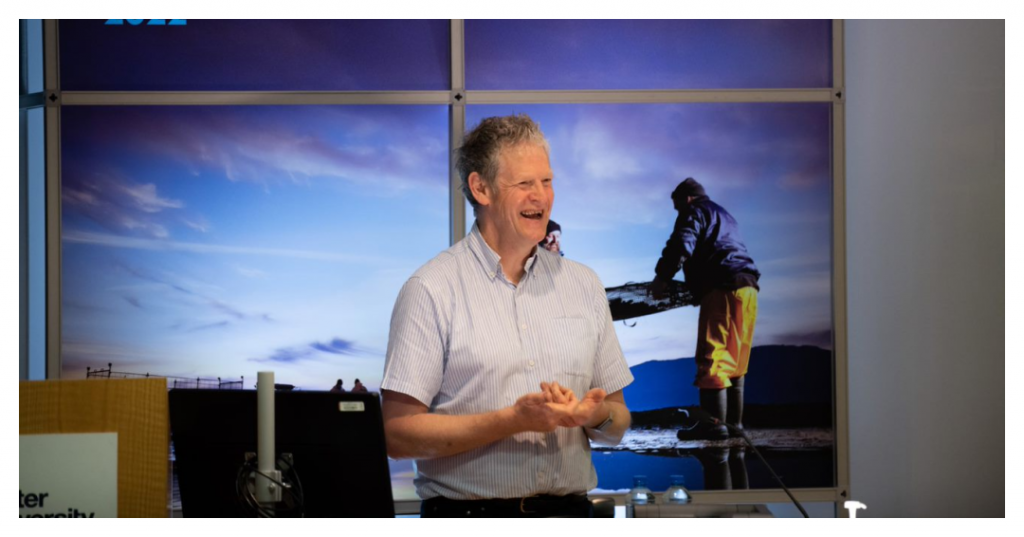
Anna Pollock – Creating Meaning: Food Communities with a Higher Purpose
Distinguished tourism strategist Anna Pollock delivered fresh perspectives on how we might tackle contemporary crises, notably the degradation of our natural environment, the climate emergency and their impact on the human condition. She explored the role of hospitality in achieving community regeneration – of healing broken communities. Ultimately, she invited us to imagine a future in which the ways in which we grow, cook and come together around food signify our collective commitment to the place in which we live and to those with whom we share it.
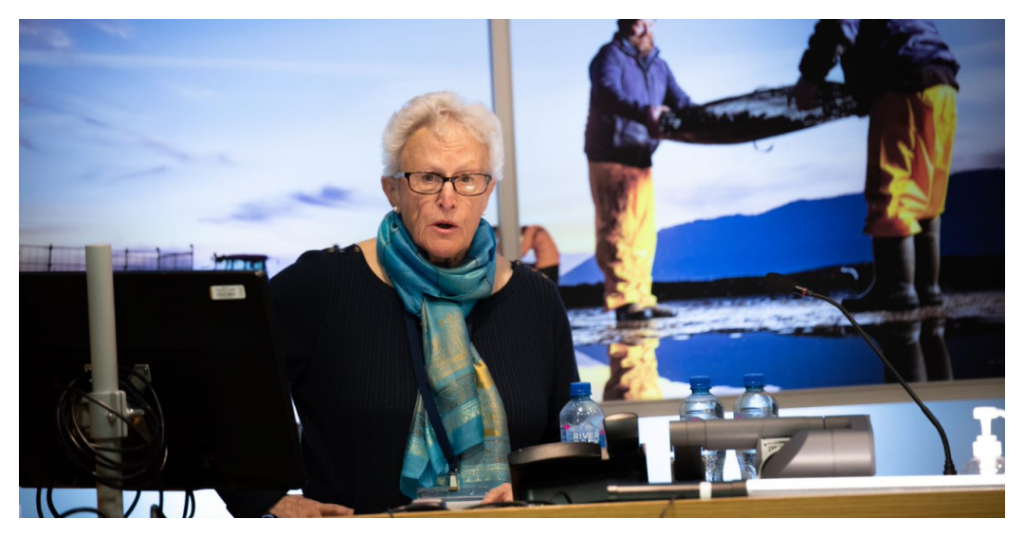
Carolyn Steel – Sitopia: How Can Food Help Communities Thrive?
Author and academic Carolyn Steel built on ideas introduced in her award-winning book, Sitopia. She considered the development of food systems in the context of cities – increasingly defined by insecurity, waste and a disconnect from nature. She explored how we might shape an alternative future (a sitopia), built on good governance of our food system and characterised by resilience, an appreciation of value, craft and flavour and on conviviality.
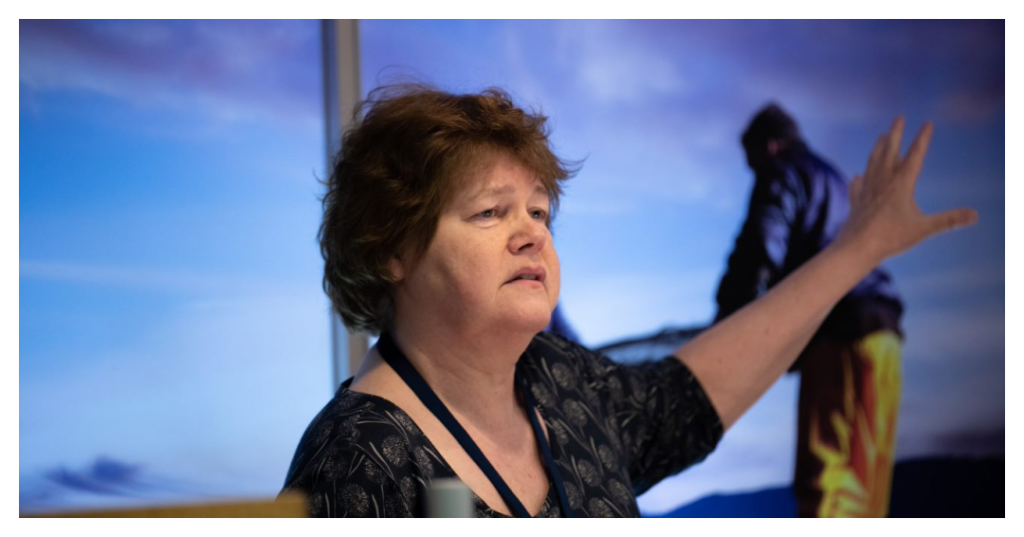
Michael Caines MBE and Marc Millon – Building Local Food Systems: Harnessing the Power of Community in Devon
Renowned chef Michael Caines MBE and respected food, wine and travel writer Marc Millon, discussed transformation of Devon, through food, drink and hospitality. Starting with observations about post-World War 2 British food culture, they explored how Devon has avoided many of the dominant trends that characterised the British relationship with food, to develop a world-class culinary culture. This has included the contribution of a community of food and drink professionals.
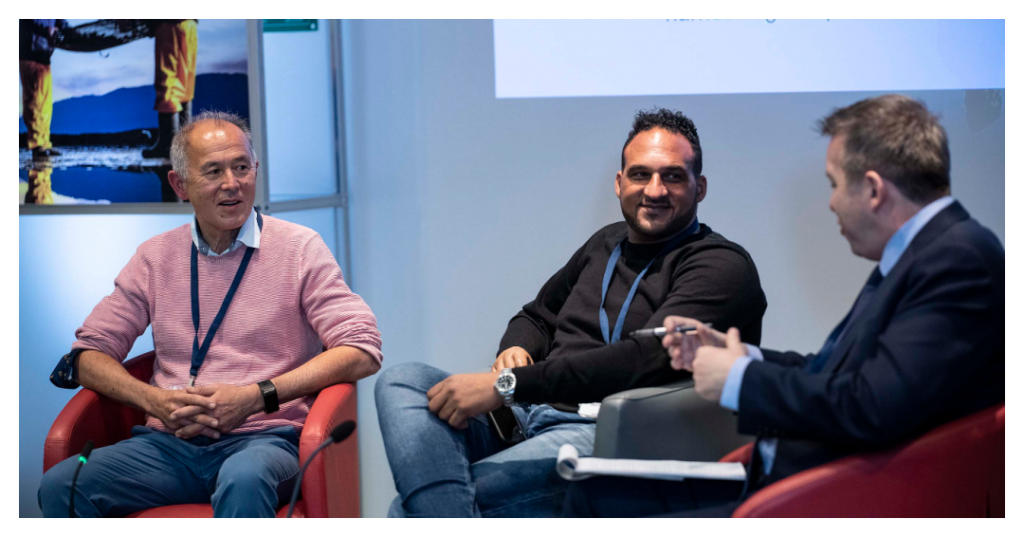
Dan Saladino – Eating to Extinction or Protecting Diverse Cultures
Presenter of the BBC Radio 4 Food Programme, Dan Saladino, focused on a food system in crisis, signalled by a rapid loss of biodiversity. He identified food varieties that have been lost, largely as a result of industrialised agriculture, and the consequent impact on local communities. Dan also outlined what can be done, through policy, investment and local action, to reclaim our food system in ways that help communities thrive.
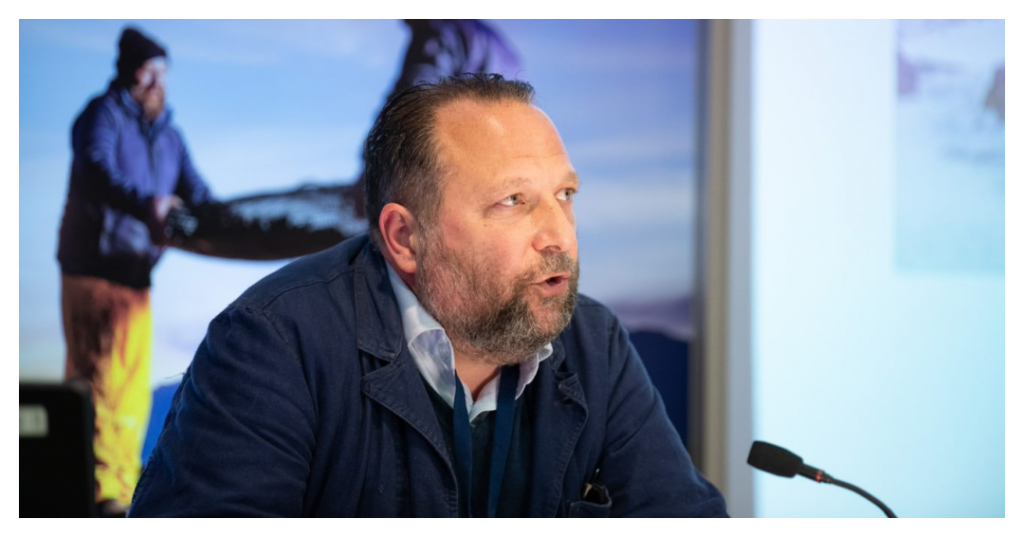
Dr Jessica B. Harris – Culinary History: A Community Confidence Builder
In a hard-hitting presentation, renowned culinary historian and broadcaster Dr Jessica B. Harris, outlined how dominant narratives in US culinary history have failed to acknowledge the contribution of those of African origin. She reflected on the need to reclaim Black history, to give voice to untold stories and to legitimise the foods and culinary traditions of African Americans. Dr Harris also considered the important role of a new generation of Black chefs and food writers who are gaining prominence.
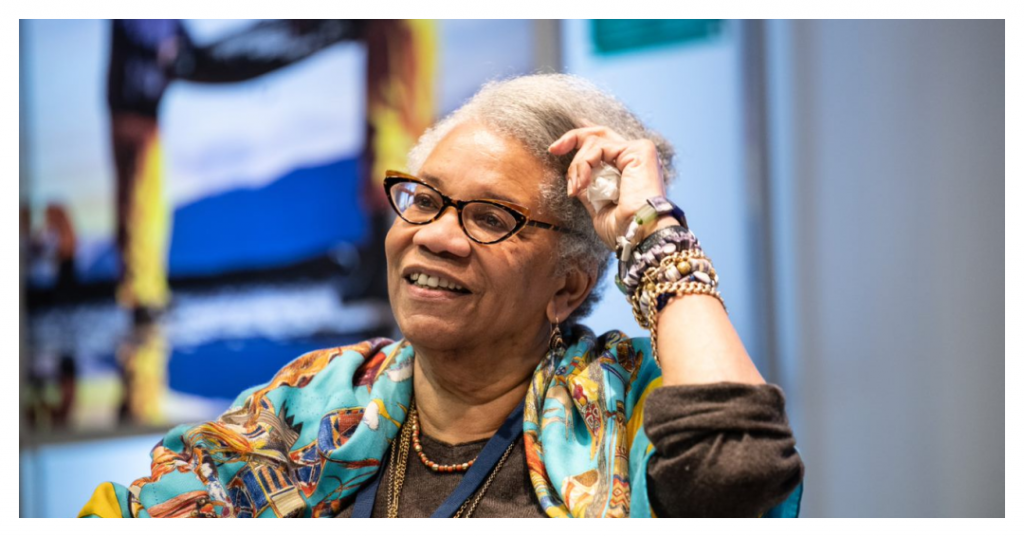
Melissa Thompson, Dr Jessica B. Harris and Akwasi Brenya Mensa – Helping Professional Communities Flourish: Tackling Systemic Prejudice in Food, Drink and Hospitality
Author and activist Melissa Thompson was joined by Dr Jessica B. Harris and chef and curator Akwasi Brenya-Mensa, to explore systemic racism and its impact on the career progression of Black culinary professionals. Melissa began with a powerful account of the impact of explicit and ‘casual’ racism, in which she shared personal experiences. Dr Harris reflected on the need to change our model of culinary education, to ensure it is reflective of the diversity of modern society. Akwasi highlighted specific challenges for Black chefs, including securing the finance required to support new business ventures.
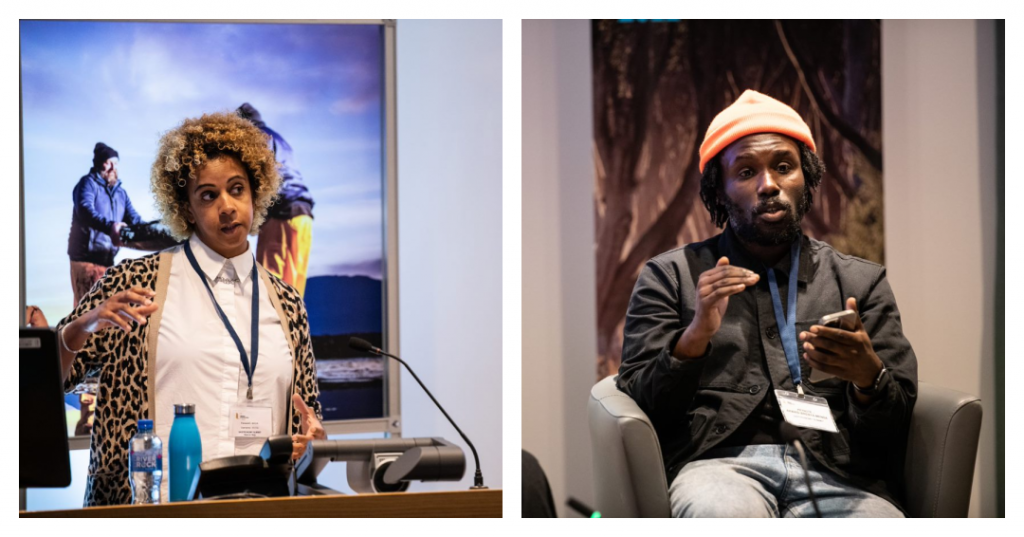
Professor Una McMahon Beattie, Dr Joxe Mari Aizega and Dr Andrea Pieroni, with Donald Sloan – Education: Supporting the Development of Local Food Cultures
A panel of educationalists from Ulster University, The Basque Culinary Center, University of the Gastronomic Sciences and the Oxford Cultural Collective, considered the broad role of education, including nurturing the talents of students, being an advocate for change in practice, protecting culinary heritage and supporting innovation. They discussed the need for food and hospitality education to be multi-disciplinary, and to have local impact, as well as international application.
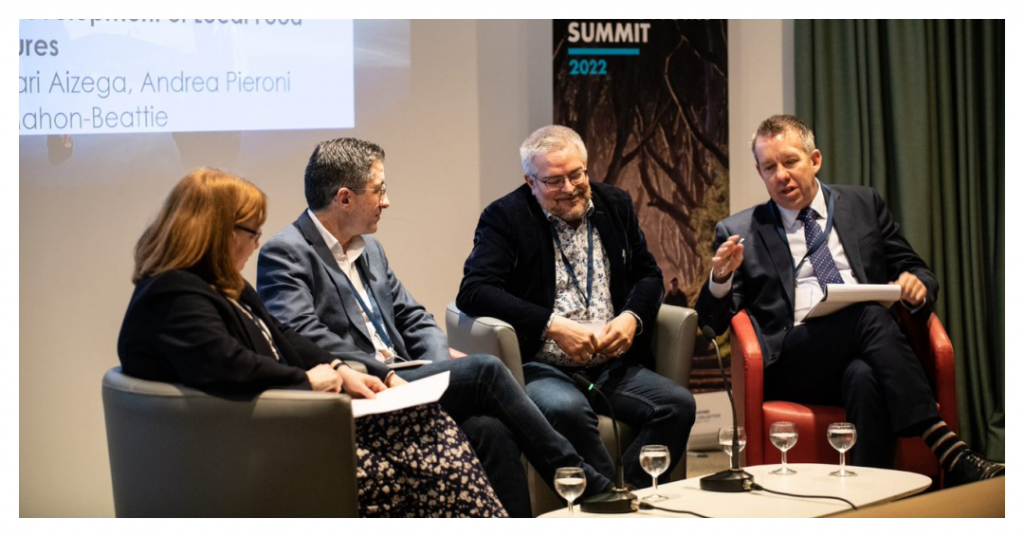
Michele Shirlow and David Roberts – Transforming Northern Ireland as a Food and Drink Destination
Michele Shirlow, Chief Executive of Food NI and David Roberts, Director of Strategy for Tourism NI, considered the role of professional communities in the developing Northern Ireland as a leading food and drink destination. Michele outlined the strategic steps that have been taken, including staging the successful Year of Food and Drink in 2016, supporting local producers and building a strong and defining narrative. David explored the practical implications for tourism development, including food becoming a primary motive for tourist activity and shaping the image of Northern Ireland, internationally.
